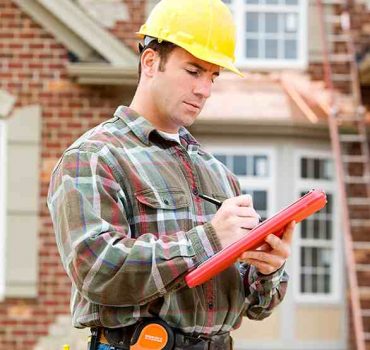
John Bleasby
Outsourcing building inspections: Coming to a municipality near you?
Canadian ContractorCutting costs and liability risks are two reasons this trend may grow
Local townships and municipalities are facing increased pressure to outsource building inspection functions to third party providers, opening the door to questions about fees, liability and potential corruption. It’s a trend already underway in the United States, and something to watch in Canada.
 Maintaining a team of qualified in-house inspectors is a challenge
Maintaining a team of qualified in-house inspectors is a challenge
The Township of Oro-Medonte north of Toronto is like many rural agricultural areas on the perimeters of major Canadian cities. Things are booming. Relatively low land costs, open spaces and easy access to the city make it an appealing retirement or non-urban resettlement destination. Staff building inspectors are very busy. Some are seasoned veterans, some are newbies, some are even retired inspectors brought back part-time when things really get hopping. The result is a group of inspectors with varied experience, and a challenge for those in charge of recurrent training. Who shows up during the construction process is anyone’s guess.
The shape of things to come?
When it comes to site drainage plans however, one thing has changed. Even if the builder has hired a surveyor and/or engineer to design the required site drainage plan, Oro-Medonte now requires a $1,000 deposit be paid to a third party for review, in this case the local office of engineering giant Aecon. Aecon looks over the drawings and calculations, and then either approves or suggests changes. Only later, after the final plan is executed and inspected for compliance, will the Township issue the final occupancy permit. (The home builder receives a refund for any portion of their $1,000 that wasn’t spent in the review process, or is billed any extra.)
Is this the tip of the iceberg in terms of inspection outsourcing?
Corruption potential?
It’s a growing trend in the United States, and as reported in Construction Dive, it started during previous down cycles when private sector firms began hiring inspectors laid off by municipalities, then turned around and offered their inspection services back when things picked up.
However, a building official in South Carolina told Construction Dive about his concerns over such an evolution. “We see the advantage of being able to focus our resources where they’re needed most,” said Ken Granata. However, he continued, “There should be checks and balances…there should be follow-up”, emphasising the importance of building relationships to ensure inspectors are trustworthy and able to meet their responsibilities to the community.
It’s about the money, honey!
Two factors are driving more townships and municipalities to consider third party outsourcing of the inspection and approval process, and both involve money: internal cost reduction, and legal liability.
“Smaller cities have the headache of (paying) benefits, insurance, vacation, sick time, and welcome the opportunity to farm it out,” said one industry insider. Not only that, some smaller centres can’t afford to hire the level of expertise they sometimes need.
 Mitigating liability risks
Mitigating liability risks
In Canada, the CMHC acknowledges the reality of third party inspectors: “Some government jurisdictions allow private third party inspectors to do some, or all, of the work of a municipal building inspector.”
However, the issue of liability arises if something goes wrong. In British Columbia, for example, it has been determined that “most local governments do pass bylaws to regulate building construction, and once they do, the law of negligence dictates that, subject to certain defences, they will be held liable if they carry out their duties under the bylaw in an improper manner… Local governments at times find themselves standing alone to defend a claim, the other parties having disappeared or lacking sufficient funds to defend the claim.”
In other words, outsourcing the inspection process to a third party may be a way a municipality or township to minimise the liability risk.
Hmmm… Maybe a ‘cash grab’ too?
Outsourced building inspections may also be a way of passing down more costs to the home builder or even creating a new revenue stream. Similar to the site drainage approval process in Oro-Medonte, one could easily foresee a time when, in addition to standard building permit application and processing fees, new charges could be levied to cover the costs of mandatory third party building inspections.
What are your experiences with outsourced third party building inspections?
follow John on Twitter 
@john_bleasby

Leave a Reply